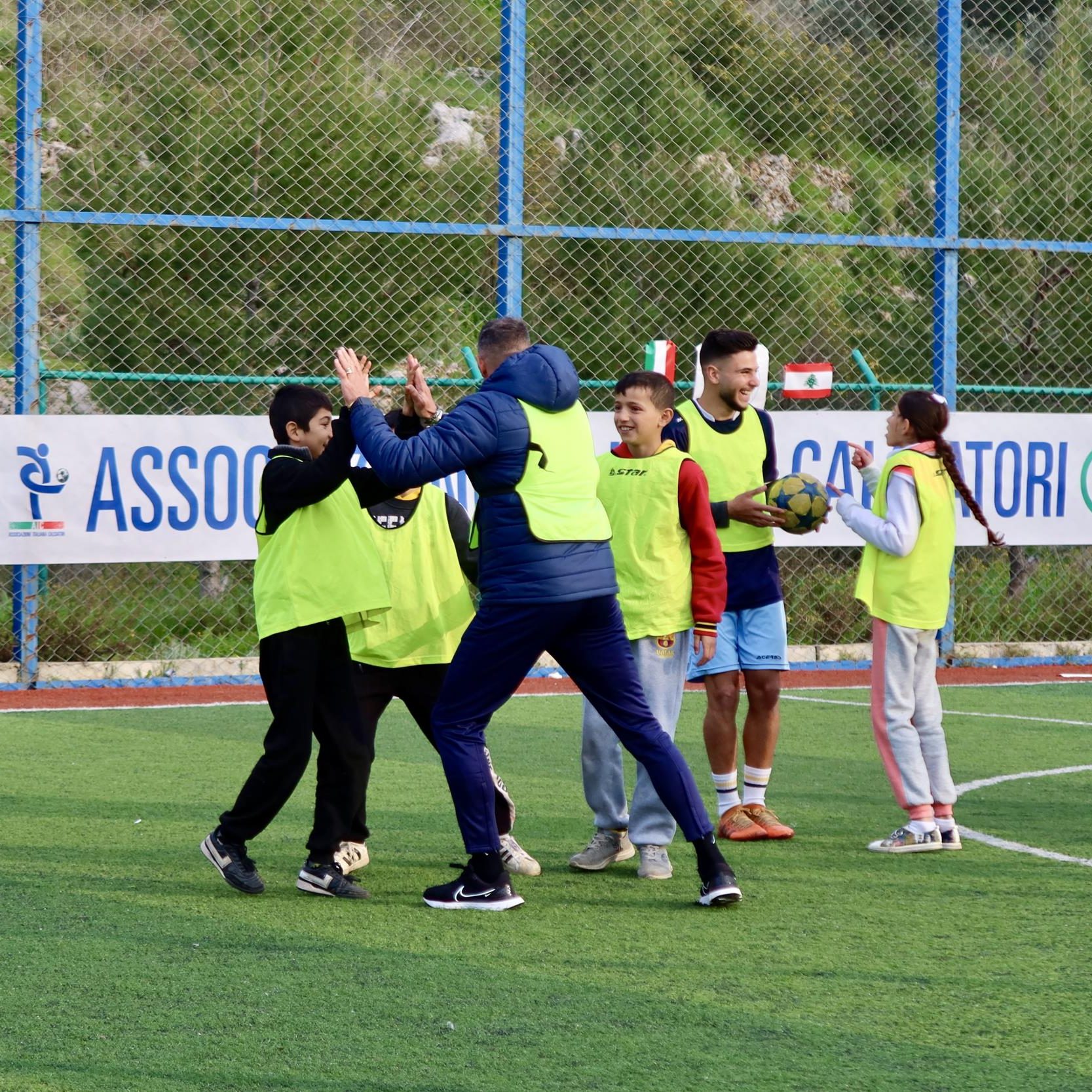On March 15th, Syria entered in the thirteenth year of war and over 15 million of people need humanitarian aid.
Two million of Syrians live in refugee camps in Lebanon, which is by far the major refugee-hosting country per capita. Nonetheless, Lebanon has been suffering from an unprecedented economic and social crisis since 2019. The country is falling apart and both Syrian and Lebanese children as well as young adults, who find themselves in lack of opportunities, are the ones paying the price.
Aida is 35 years old, Ma’awiya 42. There is no need to explain how life works in a refugee camp, the corps arrive there first and show it to you. Aida and Ma’awiya live in a refugee camp with their four children in Marjayoûn plain, on the south of Lebanon, the most rural and underdeveloped area in the country. A “forsaken plain” where refugee camps take turns to Christian villages and Hezbollah strongholds - all the way until the Israeli border, which is patrolled by Unifil forces (UN intervention forces in Lebanon). They fled Raqqa 12 years ago when war broke out in Syria. All of their children were born in Lebanon; the refugee camp is the only place they can call home. Moreover, they have neither a Lebanese nor a Syrian citizenship because “it’s too expensive and beyond our means” to regularize their citizen status. Aida and Ma’awiya only desire for their children is “to go to school”. However, as it often happens in collapsed states, Lebanese schools are often kept shut.
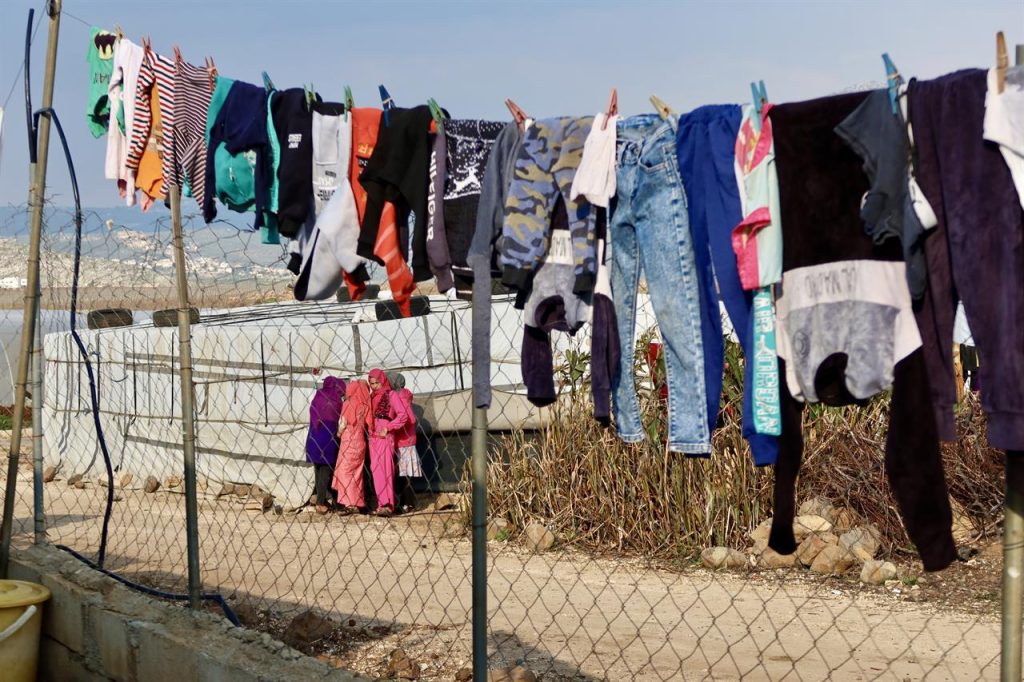
The refugee camp, where Aida and Ma’awiya both live, is called Amra, and right there, as well as in other camps that have been drawing Lebanon geography nowadays, a country as wide as Abruzzo, things work in a certain way: a small plot of land is “rented” and a tent will be assembled there afterwards. The property owner is paid and if there is no money to do so, there are his growing fields that can be tended to. These are technically called “Informal Tent Settlements” but in reality, they are just expanses of land and tends which do not provide any types of services.
Zahira and Isaam also live in Amra and they have six children, four daughters and two sons. They fled Deir el-Zor in 2014 and their biggest desire is to send their children to school: “they deserve a different life than this one". The life of Syrian refugees in Lebanon has become a chronic emergency.
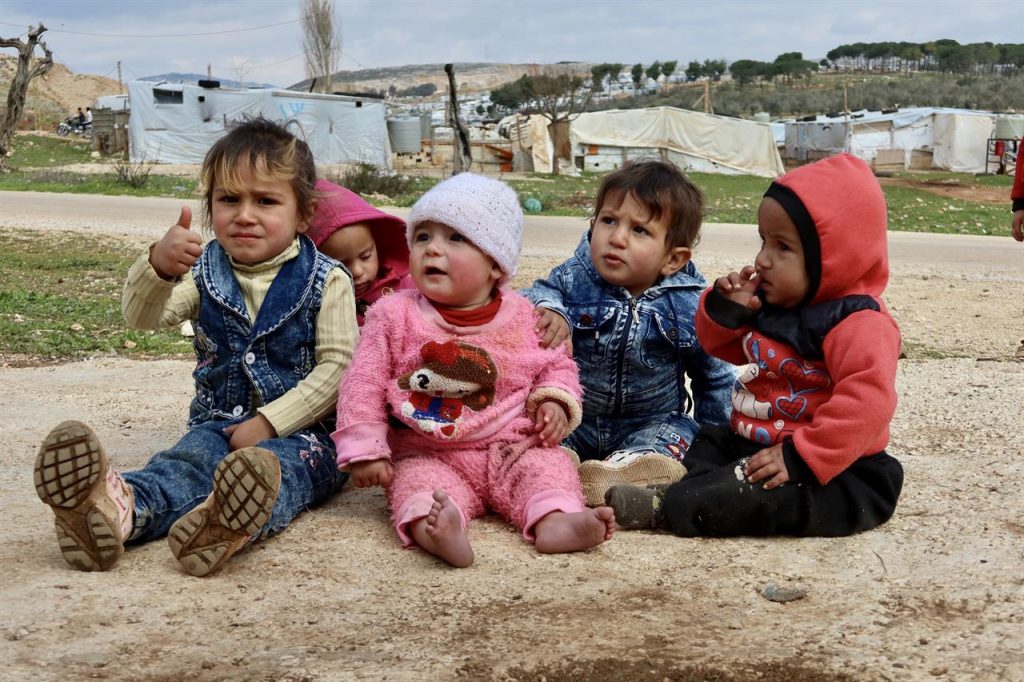
Invisible refugees
Lebanon officially hosts two million of Syrian refugees. The last survey was carried out by the UNHRC in 2015; however, the amount of war refugees as well as war victims keeps growing because of the Syrian conflict. The United Nations High Commissioner for Refugees has stopped recording them. In order to comprehend deeply the importance behind this amount, another figure must be taken into account that is the amount of Lebanese citizens, which does not reach four million of inhabitants anymore; however, this figure is just an attempted guess because the last population census in Lebanon was conducted in 1932. In Lebanon, the Government does not legally recognise most Syrian refugees because it has not signed the Refugee Geneva Convention; therefore, it does not acknowledge their refugee status, which explains why there are not any well-structured and organized refugee camps. However, nowadays, Lebanon does not even have a government anymore. This country was once called “the Switzerland of the Middle East” but everything started to change when the civil war broke out in the years 1975-1990, followed by the Israeli-Lebanese conflict in 2006.
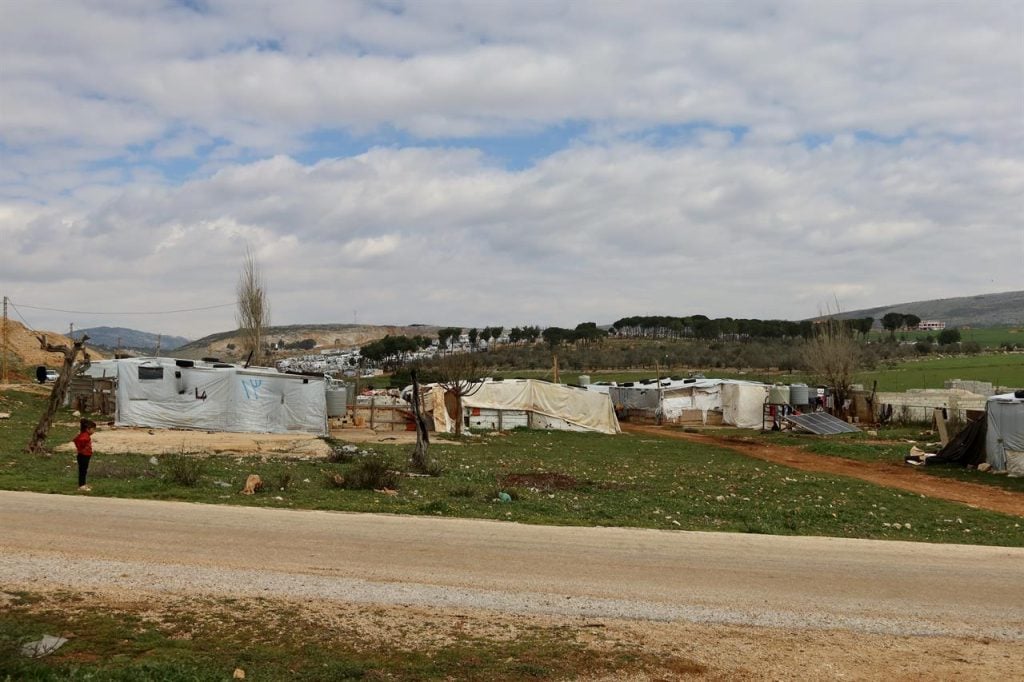
In October 2019 the situation plummeted, almost reaching its breaking point, when numerous protests began to appear in public squares marching against the government’s incompetence to provide solutions to the economic crisis. It was a financial crisis never experienced before, which affected the real economy of the country causing a severe social crisis: nowadays, around the 82% of Lebanese people live below the poverty threshold, the cost of life is unbearable, basic services as well as government institutions have collapsed, unemployment and inflation have been threatening the already fragile social cohesion. The Coronavirus pandemic and the explosion in Beirut’s harbour in August 2020 have given to the country the finishing blow. Nowadays, Lebanon is not breathing anymore and its lights are all turned off. There is no electricity, some can afford to buy a generator but those who could afford to buy the fuel back then, they are now unable to do so. Banks are being shut for weeks, it is impossible to make a withdrawal. The bank accounts opened before 2019 have all been blocked. If you feel sick, you can get medical care only if you are very wealthy; otherwise, clinics will not even take you in. Even schools are often on strike, teachers’ average salary is equal to 90 dollars per month. The Lebanese people are continuously checking the "Lira Exchange" application on their phones, local currency has now the same value of waste paper and the inflation has skyrocketed.
The crisis impact on children’s life
Both countries would not know how to survive without the aid of international cooperation. AVSI has been facing the post-war social and health emergency in Lebanon since 1996 and it has been promoting educational programs ever since. Nowadays, most of its programs attempt to respond to the severe economic and social crisis, allowing refugees and the hosting Lebanese community to have access to education as well as training and job opportunities. The ONG provides professional training courses, educational activities and psychosocial support to Syrian children and it supplies goods of first necessity such as water, food and clothing.
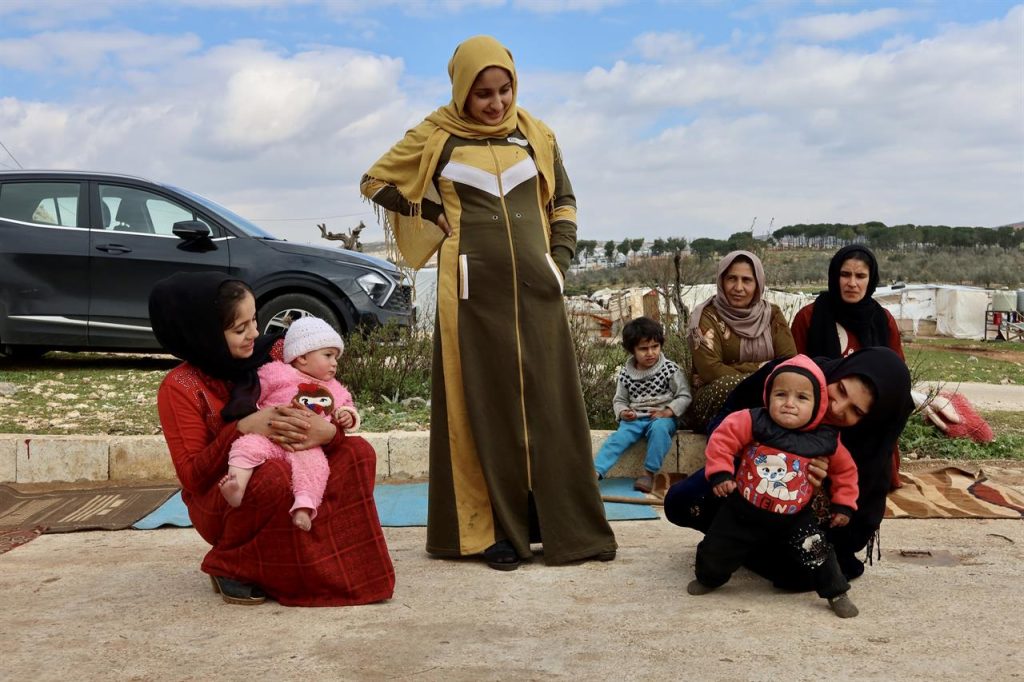
Why drawing attention especially to children and young adults?
Because the crisis has been taking away their hope for the future. «In 2022, thanks to the donations made by Italians, we gave long-distance aid to nearly 1,300 Syrian and Lebanese children and young adults. That gave themthe opportunity to: take part in educational and professional training programs, attend schools but also participate in sporting and recreational activities or in remedial courses to reduce the flunking rate», says Alice Boffi, head of AVSI long-distance support program for the Middle East. "Every single child, who is supported through the long- distance program, is followed by an educator who tries to comprehend their needs and provide for them. However, the program does not only support the child individually but it takes care of their whole family as well, which is involved in educational activities and cash-for-work projects».
Young adults without opportunities but full of desires
Last year AVSI started a collaboration with AIC, the Italian Footballers Association, within the long-distance support program, to develop jointly a sport-education initiative, which started last June. Its goal was to train 15 young Lebanese adults to become in turn coaches for Syrian and Lebanese children living in Marjayoûn plain.
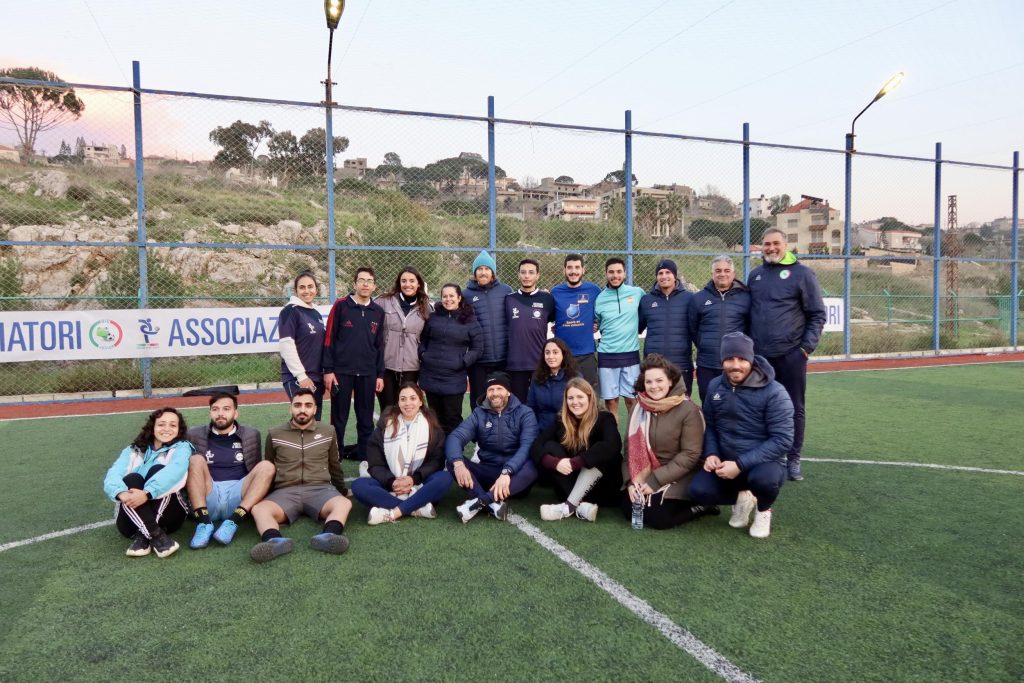
«AIC is involved in organising sporting and educational activities for children in Italy and abroad», explains Luca Milocco, the organisational manager of the association junior department. The team of trainers composed by Francesco Mortelliti, Simone Berardi, Mennato Cannelli, Luca Altomare, Simone Perrotta, AIC Junior Director, and Davide Biondini, AIC National Vice-President, also joined Milocco in Lebanon.
In the Marj el kokh refugee camp, the footballers were “assaulted” by children. Moments of social interactions and playful activities took place, which had been designed and organised to tear those children away from the rigid monotony of life in refugee camps. Why is it important to provide them with different opportunities? So that they can feel they are not being forgotten.
"I had so much fun with you, I liked you a lot", says Anin, 12 years old. "I like playing with you and I like studying", adds Samira, who is also 12. "How nice it is to spend time together like we did", say Farah and Nour, who are respectively six and four. All these children are part of the AVSI long-distance support program and are involved in the sport-education activities born thanks to the collaboration with AIC.
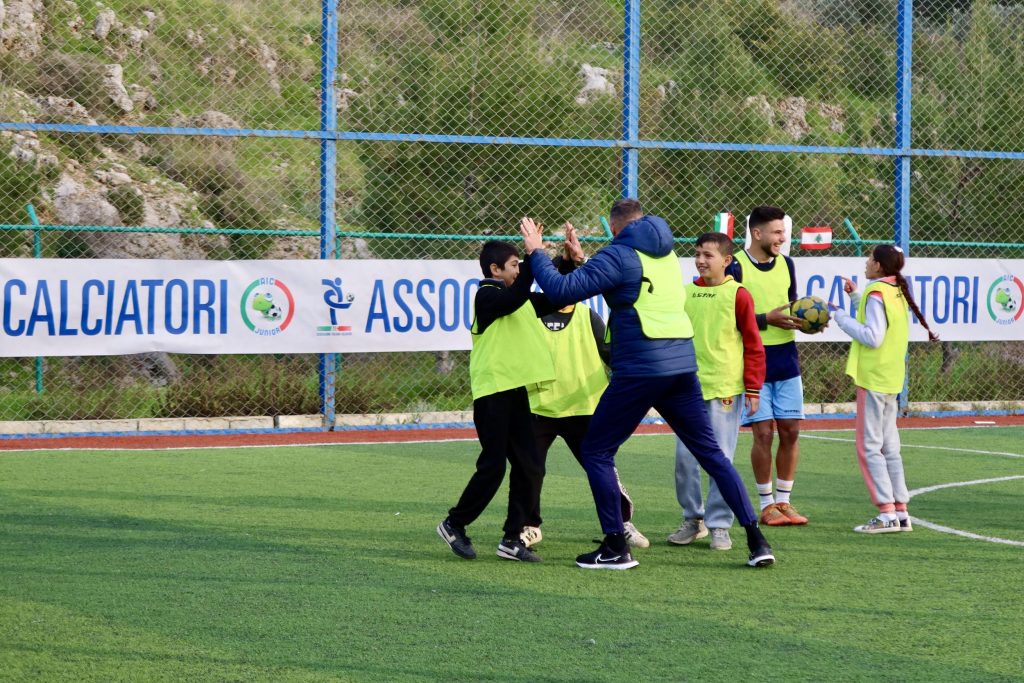
Nevertheless, let us not forget the opinions of the Lebanese young adults trained by AIC coaches. Among them, there is Mohammad, 20 years old, who “has kidnapped” Bader, 21 years old. They are in front of each other and he looks like an orchestra conductor, only that he is not conducting a musical performance but he is just conducting Bader on how to shoot photographs: «hayaa “urid “an “ansharah ealaa Instagram» (“C’mon, I want to post it on Instagram”). Mohammad is sitting and he turns sides, first profile, then front, then right, then back to the left and with his finger he shows Bader where to shoot: «adnaa Bader “adnaa» (“lower Bader, lower”). Then he changes his mind «la ru- bama kan sayiyan min qabl» (“maybe it was better before”). Mohammad and Bader are little more than teenagers, they like normal things: social media, friends, love, sports; however, the profound and forgotten crisis that Lebanon has been going through is taking away all their options except their aspirations. «I am an engineer, » says Mustafa, 24 years old, «but there is no job for me. I have thought about leaving. But where? How? With what money? ».
Mustafa is glad to have become a coach: «We have to focus on children, » he says. «It doesn’t matter whether they’re Lebanese or Syrian, just focus on them». Badar, on the other hand, has one big dream: «To go abroad and find a good job: I would like to study human resources». Mohammad Fayad adds: «I had studied Arabic literature but then I left that path because I said to myself: “But what work can I do here? None. Maybe I can only be a teacher, but being one in Lebanon at the moment, after the downfall of salaries, is not an option”. Yet I would have liked working with children, with this program I realised I am capable of it». Youths who have taken part in the program «are young adults who live in this country region, » Boffi explains. «They are young adults who want to do something for their community. Some are former long-distance support children, others are brothers or sisters of children that AVSI is still supporting”.
In Lebanon, youths are stopping chasing dreams: «There is no time», Rafca says, «we have to work to help our families». Hanine works even though she would like to keep studying: «The University is in Saida, it’s too far from here and I can’t ask my parents, I’ve got two other sisters growing up». Mohammad smiles, Bader has finally taken the photograph he wanted. Like all the boys and girls he has met, he only asks for a normal life. However, normal in Lebanon is an adjective that no longer exists for anyone. Neither for Syrians nor for Lebanese people.
*The names of Syrian refugees have been changed to preserve anonymity
